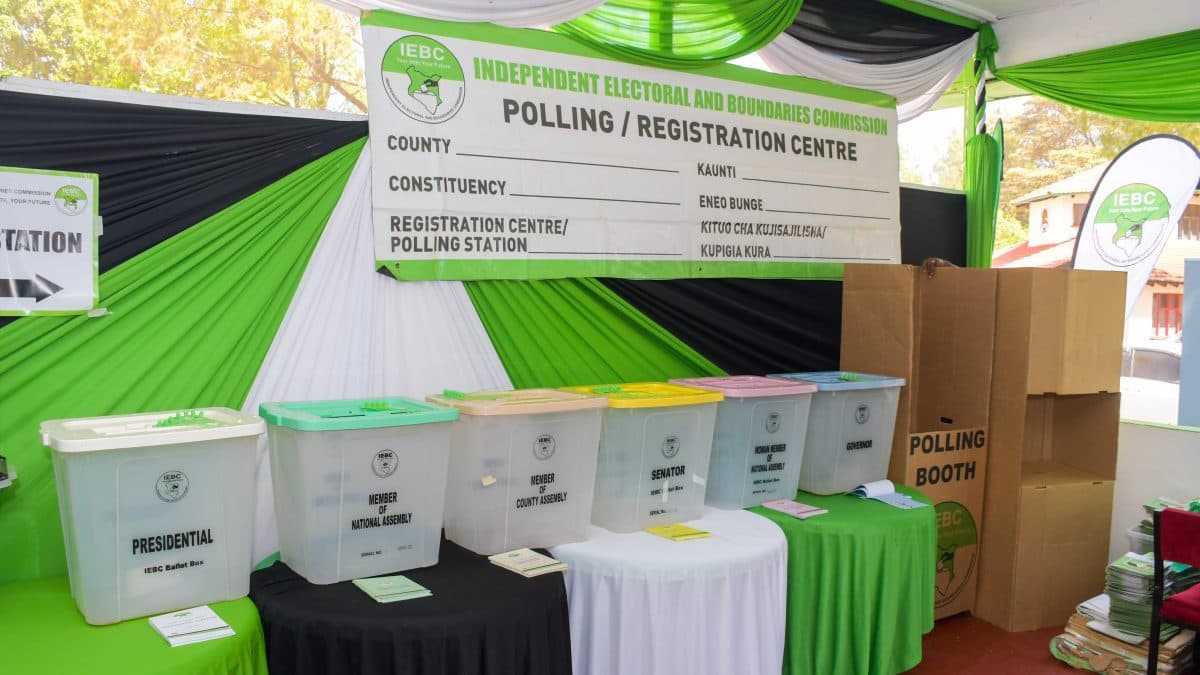We're loading the full news article for you. This includes the article content, images, author information, and related articles.
A proposed amendment to the Registration of Persons Act could compel all Form Four students aged 18 and above to acquire national identification cards and automatically register as voters before completing secondary school.

The Parliamentary Committee on Administration and Internal Affairs on Tuesday, October 7, 2025, approved the publication of the Registration of Persons (Amendment) Bill, 2024. This significant step paves the way for potential changes in how national identity cards (IDs) are issued and how voter registration is conducted across Kenya.
If enacted, the Bill would make it mandatory for all Form Four students who have attained the legal age of 18 to be issued with national identification cards before leaving school. Additionally, Kenyans aged 18 and above would be automatically registered as voters under the Independent Electoral and Boundaries Commission (IEBC) database.
Currently, obtaining a national ID and subsequently registering as a voter are voluntary processes for individuals who have reached 18 years of age. The Registration of Persons Act (Cap. 107) already mandates that Kenyan citizens aged 18 must acquire an ID, a process facilitated by the Department of National Registration Bureau. Failure to register for an ID within 90 days of turning 18 is considered an offence under existing law.
Kenya is a youthful nation, with approximately 75% of its population falling within the 18-35 age bracket. Despite this, youth comprised only about 40% of newly registered voters in the 2022 General Election, a decline of 5.17% from 2017 figures. This Bill seeks to address the historically low voter registration among young people.
The proposed amendments to the Registration of Persons Act, Cap 107, are sponsored by Kipipiri MP Wanjiku Muhia. The Bill introduces new requirements, stipulating that schools would be required to register any learner who attains the age of 18 within 30 days of their birthday. The current legal framework requires individuals to present themselves to a registration officer within 90 days of turning 18.
The Independent Electoral and Boundaries Commission (IEBC) is constitutionally mandated to register all eligible Kenyans as voters and maintain the voter register. To register as a voter, one must be a Kenyan citizen, 18 years or older, and possess a valid Kenyan identification card or passport.
Lawmakers supporting the Bill argue that it aims to streamline citizen registration, promote youth participation in elections, and reduce the long queues and delays often seen at National Registration Bureau offices during voter registration drives. Baringo Women Representative Florence Jematiah noted that the synchronisation of ID issuance and voter registration would help the country and the IEBC cut costs associated with voter registration.
Kipipiri MP Wanjiku Muhia highlighted that ensuring secondary students receive national IDs early provides them with legal recognition and access to various government services, including scholarship applications and voter registration.
While proponents emphasize the benefits of increased youth participation and streamlined processes, some Kenyans have questioned the motive behind making ID acquisition and voter registration mandatory. Concerns may arise regarding individual liberties and the potential for political influence in the registration process. Analysts suggest that the development could influence near-term public debate and policy execution, with stakeholders urging clarity on timelines, costs, and safeguards.
The Bill's implementation details, including the financial implications for schools and the government, remain to be fully clarified. The exact mechanisms for automatic voter registration and how potential disputes or errors in the database will be handled are also areas that require further elaboration. The current law requires individuals to actively present themselves for registration, and the shift to an automatic system could introduce new challenges.
The Bill has been approved for publication by the Parliamentary Committee on Administration and Internal Affairs. It will now undergo the normal parliamentary processes, including debate and potential amendments, before it can be enacted into law. If passed before the 2027 general elections, it could significantly impact voter turnout.
Observers will be closely watching the parliamentary debates on the Registration of Persons (Amendment) Bill, 2024, particularly discussions surrounding the mandatory nature of ID acquisition and automatic voter registration. The government's plans for a massive mobile ID registration exercise in 15 counties with low registration, as announced by the Ministry of Interior, will also be a key area to monitor.
Keep the conversation in one place—threads here stay linked to the story and in the forums.
Sign in to start a discussion
Start a conversation about this story and keep it linked here.
Other hot threads
E-sports and Gaming Community in Kenya
Active 9 months ago
The Role of Technology in Modern Agriculture (AgriTech)
Active 9 months ago
Popular Recreational Activities Across Counties
Active 9 months ago
Investing in Youth Sports Development Programs
Active 9 months ago
Key figures and persons of interest featured in this article